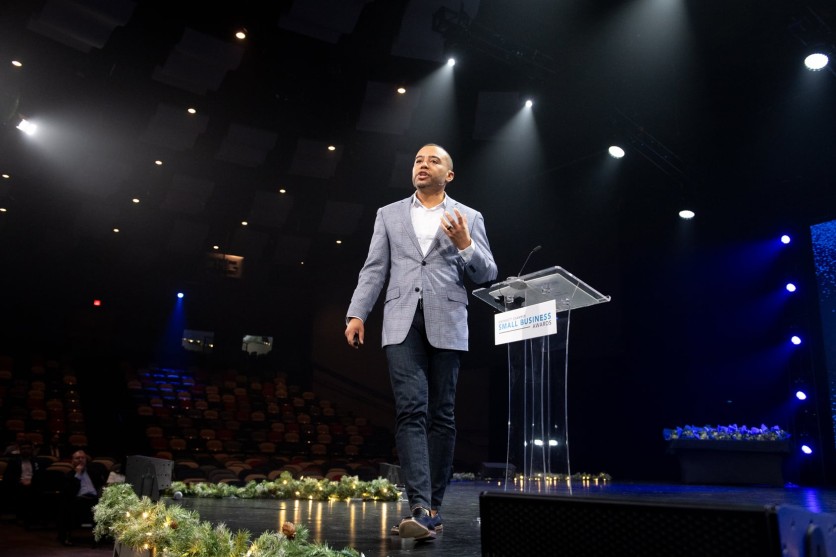
Ethan King
Artificial intelligence (AI) in business often starts with curiosity and a sense of possibility. It's increasingly seen as a tool that can help reduce the burden of routine tasks, create room for more creative work, and encourage teams to shift attention toward strategic priorities. In this developing landscape, Ethan King shares his insights informed by hands-on experimentation.
King is an entrepreneur, author, and speaker whose perspective blends creative training with hands-on business experience. He approaches technology through the lens of design and systems thinking, translating abstract tools into everyday routines that teams can adopt with curiosity and confidence. He aims to deliver ideas that can help leaders and employees see AI as an amplifier of skill and attention rather than an obscure technical hurdle.
His background is part of what makes his voice accessible. Trained in visual art, King learned automation by solving urgent problems for his own small ventures. Beginning with a lean operation in 2011, he incrementally introduced automation to sustain growth amid limited resources. Over time, those experiments informed a structured way of working that values playful learning and steady habit change. This combination of creative sensibility and tactical focus is the foundation of why his views can resonate with practitioners who are curious but cautious.
As King demonstrates how small, iterative efforts can build meaningful change, he also acknowledges a broader truth. "The real challenge with AI may not be the technology itself, but how it's approached," he says. According to MIT's 2025 "GenAI Divide" report, despite $30–40 billion in enterprise investment into generative AI, 95% of organizations have seen no measurable return. Notably, this gap isn't explained by model quality or regulatory hurdles, but by differences in approach.
"These findings reframe the conversation around AI success," King says. "Now, it's about how teams learn, measure, and embed new capabilities into their daily flow, not strictly about the tools themselves."
Observing frictions in AI adoption, King notes that employees sometimes feel uncertain about how new tools affect their roles, while some leaders are unsure about complexity, investment, or how to demonstrate clear value. He aims to reframe those concerns into practical questions. "The employee often wonders: How can this benefit me personally, and what small routines can make my job easier today?" he says. "For the executives, their questions surround: How can teams measure incremental gains, and which experiments feel safe and reversible?"

Ethan King
In training sessions, King emphasizes hands-on practice and quick wins, which often shift attitudes because people experience immediate usefulness rather than abstract promise. "When a person sees a task that used to take an hour to finish in 10 minutes, the mystery becomes a tool, and curiosity replaces fear," he explains. "I've trained employees who initially had trepidation before understanding that automation is not here to replace them, but rather to make their job easier."
From his experience, King outlines three interlocking approaches to adoption. First is an automation mindset that involves investing upfront effort to create long-term time savings. It treats systems and workflows as design problems, where small, early investments can compound.
Second, learning happens best when it's engaging. Group workshops, playful challenges, and shared experiments help normalize new practices and reinforce collective learning. Third, action with accountability means embedding small improvements into daily habits and tracking their impact so changes become part of regular work instead of one-off projects. Together, these approaches aim to make adoption feel manageable and meaningful.
To bring these ideas to life, King offers the SIMPLE framework, a practical approach for aligning personal values with organizational behavior. It encourages individuals and teams to focus on cultivating inner awareness and spiritual alignment, fostering intellectual growth through continuous learning, and managing money or financial resources with intention.
Moreover, the framework advocates for maintaining physical vitality and presence, nurturing love and meaningful relationships built on empathy and communication, and embracing joy through enriching experiences. By mapping workflows to these areas, teams can track progress and celebrate small wins along the way.
Taken together, the SIMPLE framework points to the idea that effective adoption need not require deep technical mastery. A structured, measurable, and approachable approach can create room for curiosity, reduce friction, and help teams convert modest experiments into lasting improvements.
Ultimately, the conversation about AI in business can shift from jargon and uncertainty toward repeatable practices that amplify human contribution. King encourages leaders to start with approachable experiments, invest in playful learning, and measure the small wins that compound over time. He says, "Systems are tools that invite change. When teams take small, consistent steps to use them, they can gradually improve how organizations create value and support their people."

-
 C114 Communication Network
C114 Communication Network -
 Communication Home
Communication Home


